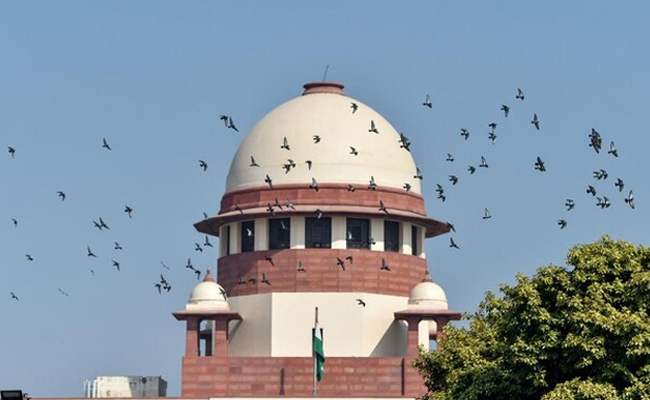New Delhi, Nov 26: The central government is treating farmers as "enemy of the State", SAD leader Harsimrat Kaur Badal alleged on Thursday, condemning the use of force to stop them from marching towards Delhi in protest against the Centre's farm laws.
Badal had resigned from the Union Cabinet in September in protest against three farm sector bills, which later got the President's assent after being passed by Parliament. She was the Union minister for food processing industries.
The Centre should not adopt a policy of confrontation with farmers. It should instead talk with them and resolve their grievances, Badal told PTI.
"Using force against farmers on Constitution Day has turned the day a 'black day' for 'annadattas' of the country," the Shiromani Akali Dal (SAD) leader said.
"The BJP-led central government is treating farmers as an enemy of the State. We witnessed the same treatment when Punjabis were stopped from going to Delhi during the Asiad Games. Such repressive tactics can have very dangerous repercussions as we have seen in the past," Badal said.
Badal's remarks come after tension spiralled at the Shambhu interstate border on Thursday as the Haryana police used water cannons and teargas to disperse hundreds of farmers from Punjab who broke barricades, throwing some into the river, determined to enter the state as part of their 'Delhi Chalo' march against the farm laws.
"Farmers' voices stifled, water cannons used on annadata!" she tweeted and appealed to Prime Minister Narendra Modi to direct Haryana Chief Minister Manohar Lal Khattar to let farmers march on peacefully to convey their issues to the Centre in Delhi.
Badal said she is shocked and pained with the way in which farmers are being treated.
Days after Badal's resignation, her party also moved out of the ruling National Democratic Alliance (NDA) over the farm laws issue.
SAD was one of the founding partners of the NDA and had a long association with the BJP from its precursor, Jan Sangh days.
Murder of democracy on #ConstitutionDay!
— Harsimrat Kaur Badal (@HarsimratBadal_) November 26, 2020
Farmers' voices stifled, water canons used on annnadata! I appeal to PM @narendramodi ji to direct Hry CM @mlkhattar ji to let our farmers' march on peacefully to convey their issues to Centre in Delhi. I stand in solidarity with them.
Let the Truth be known. If you read VB and like VB, please be a VB Supporter and Help us deliver the Truth to one and all.
New Delhi (PTI): The Supreme Court on Monday said it will list for hearing on December 17 a plea related to worsening air pollution levels in Delhi-NCR.
A bench comprising Chief Justice Surya Kant and justices Joymalya Bagchi and Vipul M Pamcholi took note of the submissions of senior advocate Aprajita Singh, who is assisting it as an amicus curiae, that though the preventive measures are there in place but the key issue was of their poor implementation by the authorities.
Singh said till this court directs something, the authorities do not comply with the protocols which are already there.
“This is coming up before a three judges bench on Wednesday. It will come up,” the CJI said.
Another lawyer referred to an application relating to the health issue of children, and said schools, despite the earlier orders, are holding outdoor sports activities.
“Despite the order of this court, Schools have found ways and means to have these sporting activities.. it is taking place. The CAQM (Commission for Air Quality Management) is again citing the order of this court,” the amicus also said.
“We know the problem and let us pass orders which can be complied with. There are some directions which can be forcibly imposed. In these urban metropolitan cities people have their own lifestyle. But the poor…,” the CJI said.
The amicus said the poor labourers are the worst ones to suffer.
Earlier the bench had said the plea against air pollution cannot be treated as a "customary" case to be listed only during the winter months only.
It had said the case will be taken twice in a month to find out short and long-term solutions to the menace.
Delhi on Monday choked under a thick blanket of smog, with the Air Quality Index (AQI) settling at 498, which falls in the higher spectrum of 'severe' category.
The air quality was 'severe' at 38 stations while it was 'very poor' at two stations. Jahangirpuri, which recorded an AQI of 498, recorded the worst air quality amongst all 40 stations.
According to the Central Pollution Control Board, an AQI between 0 and 50 is considered 'good', 51 to 100 'satisfactory', 101 to 200 'moderate', 201 to 300 'poor', 301 to 400 'very poor', and 401 to 500 'severe'.
The AQI in Delhi had climbed to 461 on Sunday and marked the city's most polluted day this winter and the second-worst December air quality day on record, as weak winds and low temperatures trapped pollutants close to the surface.





